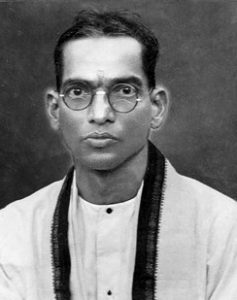Part – 13
4. FROM ADBHUTA RAMAYANA:
The Musician Kaushika was singing melodious tunes in the Heaven. Goddess Lakshmi along with her cohorts, several Sages, Narada, Tumbura and several others visited the Heaven at that time. Goddess Lakshmi requested Tumbura to sing along with Kaushiki. After the duo performed, she honored them and bestowed gifts to them. Narada felt slighted by her action. He cursed her to be born to wicked people and be punished by them.
Lord Vishnu then cajoled Narada and told him that Tumbura achieved special accomplishment because of his devotional singing. Vishnu asked Narada that he should go to the Manasottara Mountain range and learn singing from a bird living there if he desired similar abilities. He went to Manasottara Mountain and learnt the singing under tutorship of the bird. When he returned and met Tumbura, he discovered he was no match and felt very jealous of Tumbura. So he went back to Vishnu. Vishnu promised to teach singing to Narada when Vishnu takes birth as Krishna.
Narada approached Krishna and requested him to teach him singing. Krishna directed him to learn the singing for a year from Jambavati. After that Krishan directed him to go to each of his wives for a year and learn singing. Even then he could not master singing. Finally he was taught by Krishna. He became very skilled in singing, he became free of his jealousies and lived happily.
5. FROM LINGA PURANA / SHIVA PURANA:
It was a time when Narada was observing askesis on the Himalayan Mountains. In order to disturb his austerities, Indra sent a few celestial damsels to distract him. But Narada was a great devotee of Shiva. Because of the power of that devotion to Shiva, his mind was very stable and did not get lured by the damsels. Narada felt proud of his own achievement. He thought that it was because of his prowess that his mind did not waver and he did not fall for those girls’ wiles. After completing his austerities and meditation, he went to Shiva, Brahma and Vishnu. Even though Vishnu that it was due to Shiva’s power, Narada was boastful of his ability to control his mind in not being beguiled by the celestial damsels. Vishnu decided to teach him lesson. Narada took leave of Vishnu and proceeded on his onward journey. Vishnu created a city at a place on Narada’s route. He also generated an attractive palatial building in the city. A voluptuous and beautiful woman by name Shrimati was also created and placed in that palace. Narada fell for her charm. He wanted to win her hand. So he went back to Vishnu and requested him to bestow the Vishnu’s looks on him.
Narada and Parvata were on a tour of the world. They reached the city where Ambarisha lived. Ambarisha received them with befitting honors. They saw the melodiously singing Shrimati at his house. They enquired about the girl. Ambarisha told them that she was his daughter. Both of them requested him to give that girl in marriage to them. As it was not possible for both of them to marry her, he agreed to give her to one of them whom she chose. A date was fixed for Shrimati to meet both and select one of them. Narada and Parvata met Vishnu separately without the knowledge of one another and each of them prayed to Vishnu to convert the other’s face to look like that of a monkey. Lord Vishnu fulfilled the desire of both of them. Both of them came to attend the function where Shrimati would express her choice. Vishnu also went to witness the goings on. Everyone laughed looking at the mokey-like faces of Narada and Parvata. Shrimati chose Vishnu as her husband because of his comely features. Vishnu took her along with him.
Narada and Parvata were outraged. They cursed Ambarisha that he would become a womanizer as he failed to stick to his word of marrying Shrimati to one of them. But Vishnu’s weapon chased them both and they had to run away. They went to the Heaven and they saw Shrimati at Vishnu’s place. They cast a spell on Vishnu accusing him for having deceived them by making their faces look like monkeys and winning the girl of their love. They said that Vishnu would be born as a human being, would suffer separation from his wife and would be able to join back with her with the help of monkeys. Vishnu revealed that everything happened the way it did because of the power of Shiva. Because of that curse, Vishnu eventually took birth as Rama, got separated from his wife, and could get back his wife with the help of monkeys.
(To continue …. Part – 15).

